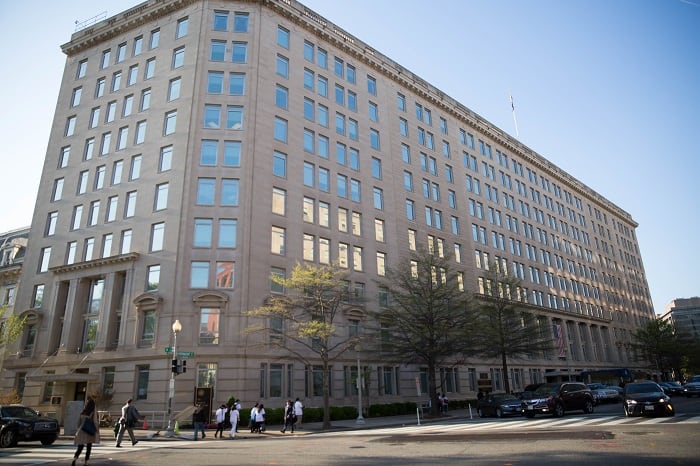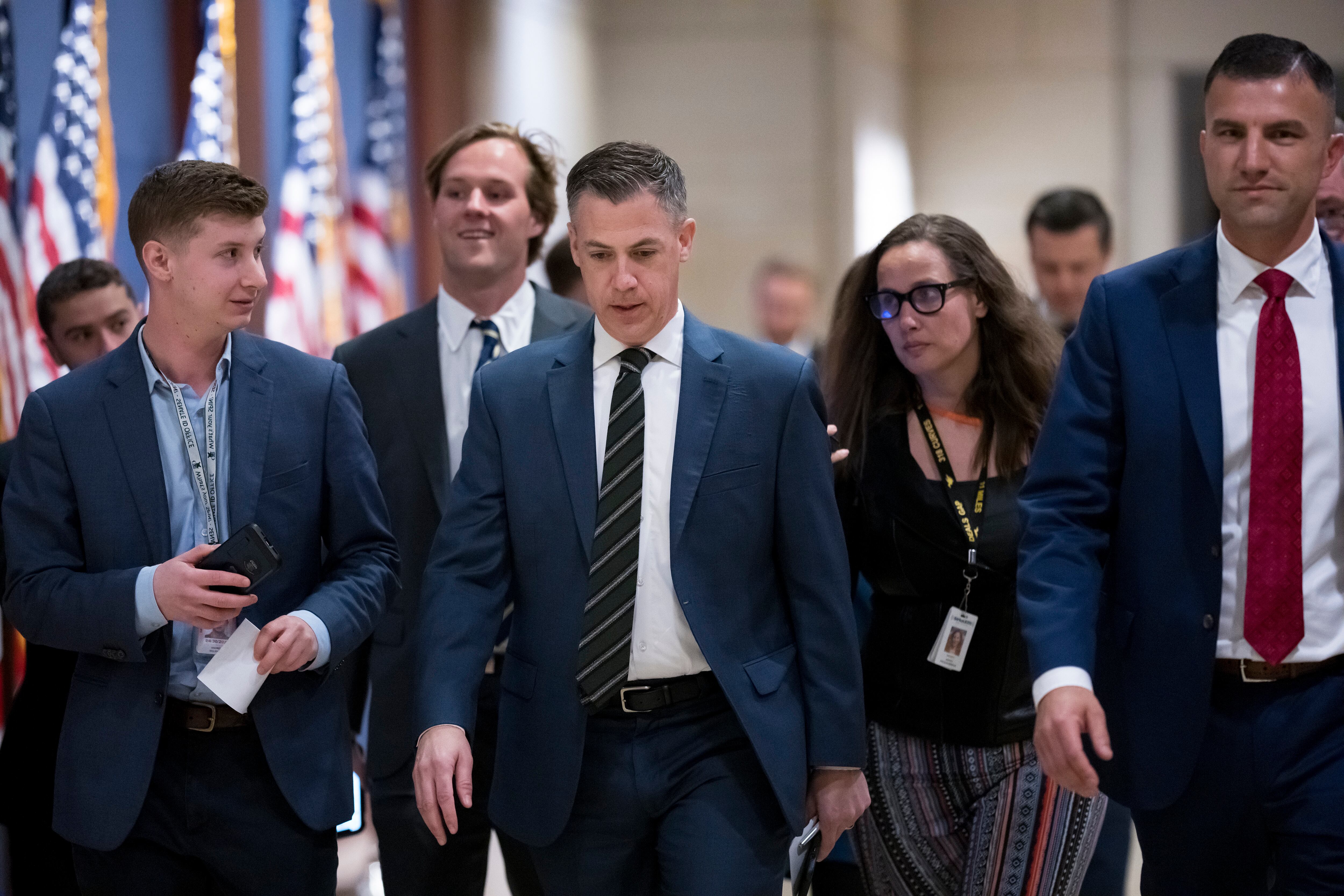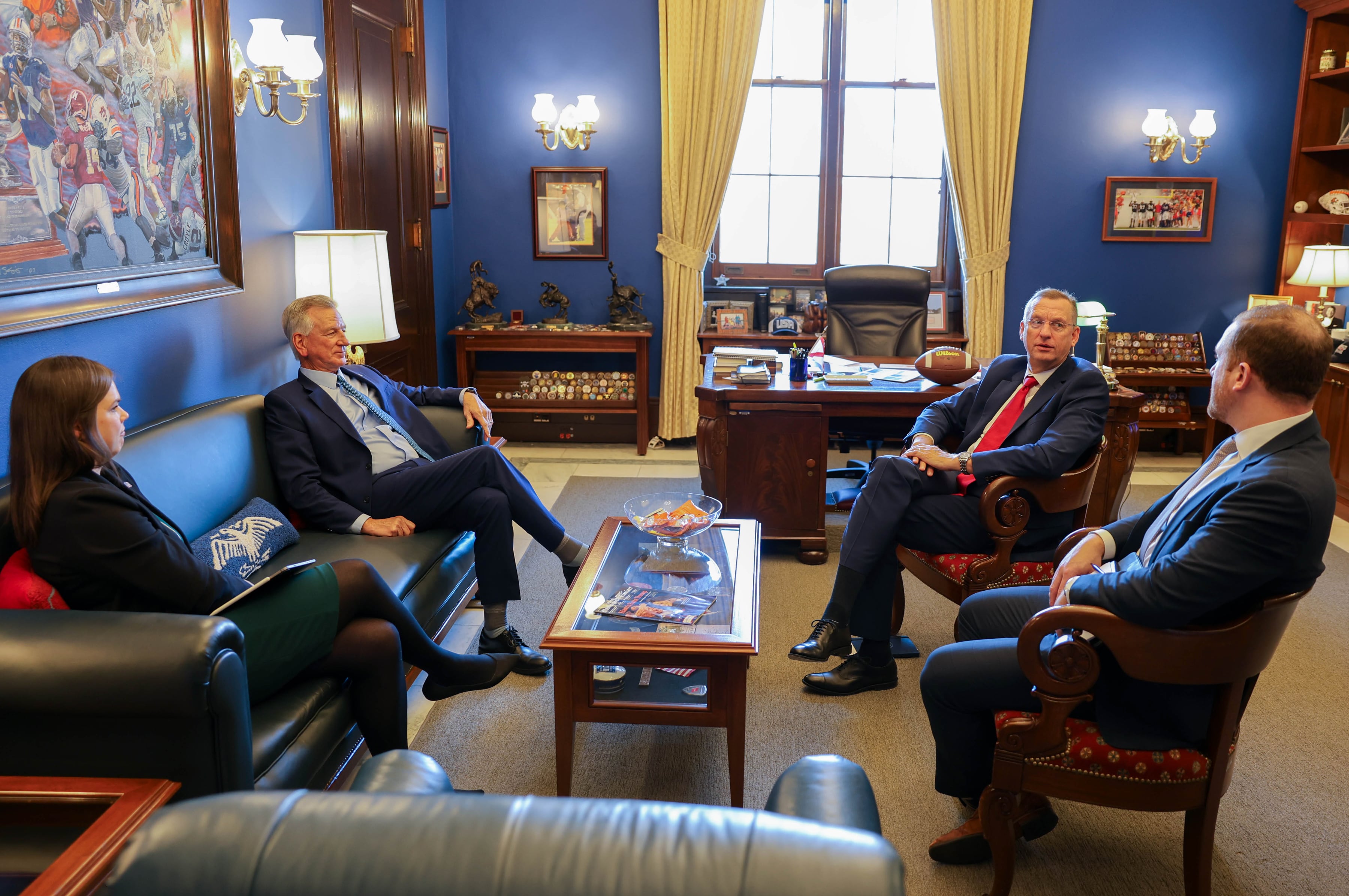The White House is considering two candidates for secretary of the Navy, following the withdrawal of President Donald Trump's original nominee, according to the Wall Street Journal.
The two candidates under consideration are investment banker Richard Spencer and former congressman Randy Forbes.
The original candidate for the position, Philip Bilden, withdrew his nomination on Feb. 26 due to "extensive financial ties." In addition to the Navy secretary opening, the Army secretary position remains open following a similar withdrawal by nominee Vincent Viola, while Air Force secretary nominee Heather Wilson has yet to be confirmed by the Senate.
Spencer served as a naval aviator in the Marine Corps. He is the director of the Marine Corps Heritage Foundation and VeteransCampaign.org and a board member for the Defense Business Board. Spencer worked on Wall Street for 15 years with Goldman Sachs, Bear Sterns and Merrill Lynch, and served as vice chairman and chief financial officer of Intercontinental Exchange, Inc. He is currently a member of the advisory board at Madrona Venture Group.
In 2010, while serving on the Defense Business Board for the Pentagon, Spencer proposed shutting down commissaries at domestic military bases, a plan he said would save taxpayers $1 billion per year, according to the Washington Post. The plan was eventually dropped after complaints from members of Congress, other pentagon advisers, veterans groups and a trade group that represent companies that sell goods in military stores.
Forbes has represented Virginia's 4th congressional district since 2001. He ran last year for the 2nd congressional district but lost to his Democratic opponent, Scott Taylor. Forbes served on the House Armed Services Committee and chaired the Subcommittee on Seapower and Projection Forces. He also chaired the Subcommittee on Readiness.
In February Forbes became a senior distinguished fellow at the U.S. Naval War College in Newport, Rhode Island, with areas of focus including naval mission and force structure, strategy and policy, civilian-military relations, and the role of Congress in national security affairs.










